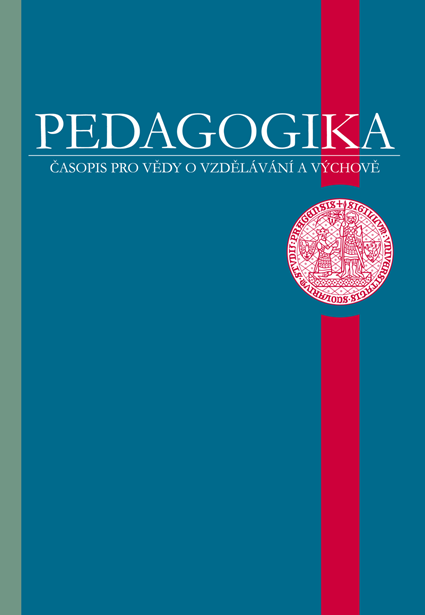Narratives of Educational Research Representations and mis-presentations in a time of interpretation
Abstrakt
Abstract: Tis article attempts to establish relations between teaching and learning (actions), education (the institutional level), and educational research. When education is addressed in this text we refer primarily to formal education. Te article starts out by presenting some important underlying assumptions for the arguments put forward in this text. Here a reference for the notion of time and history is given. Another aspect of this is that through education a student’s capability is attested (one hopes). In the next part, about “Education as an institution of speech acts”, we try to show how education is dependent on using words to mediate a just distance (Ricoeur 2000) between generations. Te main part of this article, “Making meaning of educational research”, discusses the interrelation between reality and facts, what are considered to be facts, and how facts in educational research have to be grasped together into a story, a narrative, in order to make meaning of what education is about. In the last part, we try to connect the fact that education as an institution is itself a refguration of time and how this plays out in educational research as an obligation to be critical about what is achieved through education, as a debt towards the past. Inherent in this is a criticism of faith in evidence in educational research.Reference
Arendt, H. (1989). The Human Condition. Chicago and London: The University of Chicago Press.
Biesta, G. J. J. (2010). Good Education in an Age of Measurement. Ethics, Politics, Democracy. Boulder, London: Paradigm Publishers.
Biesta, G. J. J. (2013). The Beautiful Risk of Education. Boulder, London: Paradigm Publishers.
Koselleck, R. (1985). Futures Past: On the Semantics of Historical Time. Cambridge, Mass: MIT Press.
Hoveid, M. H., & Hoveid, H. (2009). Educational Practice and Development of Human Capabilities. Mediations of the Student-Teacher Relation at the Interpersonal and Institutional Level. Studies in Philosophy and Education, 28(5), pp. 461-472.
https://doi.org/10.1007/s11217-009-9124-8
Mink, L. O. (1970). History and Fiction as Modes of Comprehension. New Literary History, 1(3), 451-558 (URL: http://www.jstore.org./stable/468271 retrieved: 02/01/2011).
Mink, L. O. (1972). Interpretation and Narrative Understanding. Journal of Philosophy, 69(20), 735-737.
https://doi.org/10.2307/2024670
Rawls, J. (1971). A Theory of Justice. Cambridge: Harvard University Press.
Ricoeur, P. (1981). The Rule of Metaphor. Multidisciplinary studies of the creation of meaning in language. Toronto, Canada: University of Toronto Press.
Ricoeur, P. (1984). Time and Narrative. Vol. 1, Chicago and London: The University of Chicago Press.
Ricoeur, P. (1985). Time and Narrative. Vol. 2, Chicago and London: The University of Chicago Press.
Ricoeur, P. (1988). Time and Narrative. Vol. 3, Chicago and London: The University of Chicago Press.
Ricoeur, P. (2004). Memory, History, Forgetting. Chicago and London: The University of Chicago Press.
https://doi.org/10.7208/chicago/9780226713465.001.0001
Ricoeur, P. (1994). Oneself as Another. Chicago and London: The University of Chicago Press.
Ricoeur, P. (2000). The Just. Chicago and London: The University of Chicago Press.
Slavin, R. E. (2002). Evidence-Based Education Policies: Transforming Educational Practice and Research. Educational Researcher, 31(7), 15-21.
https://doi.org/10.3102/0013189X031007015
Standish, P. (2001). Data Return: The Sense of the Given in Educational Research. Journal of Philosophy of Education, 35(3), 487-518.



